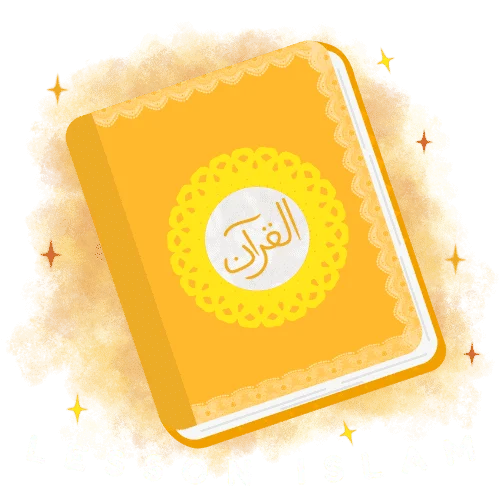Islam, a rapidly growing global religion, captivates millions with its rich history, spiritual depth, and vibrant practices. Whether you’re curious about its tenets, seeking to understand a friend’s faith, or exploring its doctrines for academic purposes, this guide aims to offer insight into the core beliefs, practices, and cultural dimensions of Islam.
Overview of Islam
Islam, which means “submission” in Arabic, emphasizes the submission to the will of Allah (God). Founded in the 7th century CE by the Prophet Muhammad in the Arabian Peninsula, Islam has since spread worldwide and presently boasts over 1.9 billion followers known as Muslims. This faith is not just a religious system but also an intricate social, economic, and political framework that defines the lives of its adherents.
The Quran, the holy book of Islam, is believed to be the literal word of God revealed to Muhammad by the Angel Gabriel. This scripture provides guidance on all aspects of life, from moral principles to legal obligations. In addition to the Quran, the Hadith—which is a compilation of the sayings and actions of Muhammad—serves as an essential source of knowledge regarding the practice of Islam.
Core Beliefs of Islam
Islam is built upon five fundamental beliefs, often referred to as the “Five Pillars of Islam.” These pillars form the foundation of a Muslim’s faith and practice:
Shahada (Faith): The declaration of faith is the first pillar. It states, “There is no god but Allah, and Muhammad is His messenger.” This simple yet profound statement encapsulates the essence of Islam.
Salah (Prayer): Muslims are required to perform five daily prayers facing the Kaaba in Mecca. This practice fosters a connection with Allah and incorporates discipline into daily life.
Zakat (Charity): Muslims are obligated to give a portion of their wealth—usually 2.5% of their savings—to charity. This promotes social equality and helps those in need.
Sawm (Fasting): During the holy month of Ramadan, Muslims fast from dawn until sunset. This discipline cultivates empathy for the less fortunate and encourages self-reflection.- Hajj (Pilgrimage): Every Muslim who is physically and financially able must undertake a pilgrimage to Mecca at least once in their lifetime. This act symbolizes unity among Muslims worldwide.
Historical Context
The history of Islam is complex, shaped by various sociopolitical factors. Emerging from a tribal society in the Arabian Peninsula, Islam quickly spread through trade routes and conquest. The establishment of the Caliphate marked the political unification of Muslim regions, which later diversified into Sufi mysticism, Sunni and Shia sects with differing beliefs and practices. The Islamic Golden Age saw intellectual advancement in sciences, philosophy, and arts, originating from cities like Baghdad and Cordoba.
As Muslims settled in diverse geographical areas, cultural exchanges altered the faith’s practice. Nations such as Indonesia, Pakistan, and Egypt have unique interpretations of Islamic traditions shaped by local customs and values, further enriching Islam’s global tapestry.
Real-World Examples
Understanding Islam necessitates recognizing its diverse expressions. For instance, in Indonesia, the largest Muslim-majority country, cultural practices often blend national traditions with Islamic tenets, creating celebrations that may differ from Middle Eastern customs. The vibrant annual celebration of Eid al-Fitr, for instance, is a time for communal prayer, feasting, and sharing with the community.
In the bustling streets of Cairo, Egypt, historical mosques share space with modern cafés, demonstrating the coexistence of tradition and contemporary life. The Egyptian Revolution in 2011 was also significantly influenced by Islamic ideals, showcasing how faith can intertwine with socio-political movements.
Additionally, the rise of Islamic scholars and female activism in various regions demonstrates that adherents are actively interpreting their faith in light of modern challenges. For example, organizations like Women’s Islamic Initiative in Spirituality and Equality (WISE) focus on women’s rights within an Islamic framework.
Authentic Reviews from Practicing Muslims
Exploring personal experiences helps demystify the faith. Amira, a 27-year-old teacher from Canada, shared: “Islam has provided me with a sense of belonging and structure. It guides my morality and encourages kindness towards others.” Her perspective emphasizes community, an aspect deeply valued in Islam.
In contrast, Ahmed, a 34-year-old software engineer from Pakistan, reflected on the challenges of being a Muslim in a predominantly non-Muslim environment: “Sometimes, people are misinformed about Islam, which can be frustrating. But I take it as an opportunity to share the true essence of my faith.”
These testimonials highlight that while challenges exist, the core values of compassion, community, and spirituality resonate deeply within the Muslim community.
Practical Tips for Implementing Islamic Practices
For those looking to engage with Islamic practices, consider the following approaches:
Learn About the Quran: Start by reading translations of the Quran alongside commentaries to understand its context. Engage with local mosques or Islamic centers that offer classes on the Quran.
Attend Community Events: Participating in events such as community iftars during Ramadan can foster relationships and enhance understanding.
Practice Compassion and Charity: Implement the concept of Zakat by volunteering or contributing to local charities, thereby practicing the spirit of giving.
Respectful Inquiry: If you’re curious about certain practices, don’t hesitate to ask Muslims about their beliefs. Most are happy to share their experiences.- Celebrate Diversity: Recognize that Islam is not monolithic—embrace the richness of its various cultural expressions and interpretations.
FAQs About Islam
1. What is the difference between Sunni and Shia Islam?
Sunni and Shia are the two main branches of Islam, primarily differing in beliefs related to leadership following Muhammad’s death. Sunnis comprise about 85-90% of the Muslim population, while Shia Muslims emphasize the authority of their Imams.
2. Is Islam a peaceful religion?
Islam, like any major world religion, promotes peace and compassion. However, misinterpretations and radical ideologies have led to extremism. Most Muslims advocate for peace and coexistence.
3. What is Halal?
Halal refers to what is permissible in Islam, specifically relating to dietary laws. It includes a set of guidelines on food preparation and consumption, similar to kosher in Judaism.
4. Do Muslims worship Muhammad?
No, Muslims regard Muhammad as a messenger and prophet of Allah, but worship belongs solely to Allah.
5. How should non-Muslims engage respectfully with Muslims?
Openness and curiosity are key. Approach conversations with respect, avoid stereotypes, and be willing to learn about Islamic practices.
Must Read:
Conclusion
Understanding Islam requires a multifaceted approach that embraces its beliefs, historical context, and cultural practices. This guide serves as a stepping stone for those interested in exploring the nuances of this rich faith. By fostering open dialogue, respecting the experiences of practitioners, and engaging with the principles of Islam, we can bridge gaps of misunderstanding and promote a more inclusive society. Whether through learning or community engagement, each step taken toward understanding Islam contributes to a more harmonious coexistence in our diverse world.














Post Comment